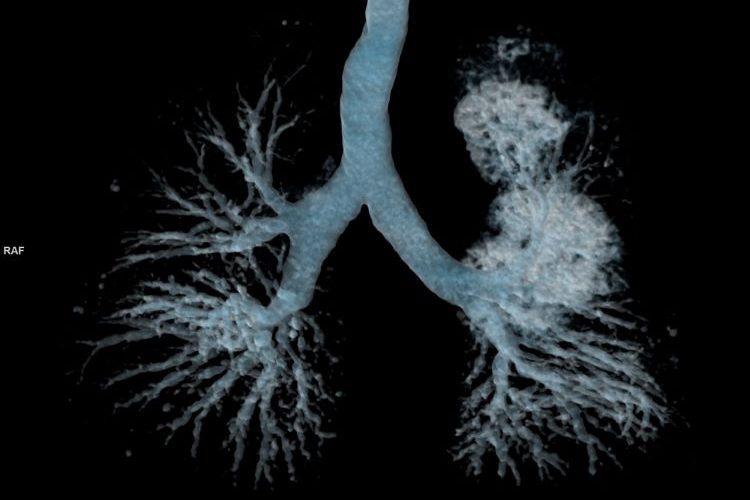Could investigational drug become first-in-class bronchiectasis therapy?
Posted: 25 April 2025 | Catherine Eckford (European Pharmaceutical Review) | No comments yet
The small molecule treatment is currently being reviewed by the US Food and Drug Administration (FDA), under the Prescription Drug User Fee Act (PDUFA).


The largest clinical trial investigating a treatment for bronchiectasis has demonstrated a statistically significant reduction in the occurrence of pulmonary exacerbations. Findings from the Phase III ASPEN study of brensocatib could provide future promise for patients, as there are currently no approved treatments for the chronic inflammatory pulmonary disease.
Brensocatib – key findings from the world’s largest bronchiectasis clinical trial
Brensocatib 25mg is the first investigational bronchiectasis therapy to show a statistically significant reduction in the rate of lung function decline, Insmed Incorporated shared.
In previously reported study results, both 10mg and 25mg does of brensocatib provided significantly lower annualised rate of pulmonary exacerbations over 52 weeks, compared to placebo. Notably, the annualised rate of exacerbations for brensocatib was 1.02 (10mg) and 1.04 (25mg), with a rate of 1.29 for placebo.
Both doses of brensocatib significantly extended the time to a patient experiencing their first exacerbation. The oral small molecule significantly increased the proportion of participants who stayed exacerbation-free over the treatment period, according to the data.
The study findings were published in the New England Journal of Medicine (NEJM).
Potential of brensocatib as first approved dipeptidyl peptidase 1 (DPP1) inhibitor
“The ASPEN data published in NEJM… represents a potentially transformative breakthrough for people living with bronchiectasis”
“For the first time, the ASPEN data published in NEJM demonstrates that a treatment which targets inflammation can reduce exacerbations and slow the rate of lung function decline. This is an exciting development and represents a potentially transformative breakthrough for people living with bronchiectasis, offering new hope for patients with this challenging condition if brensocatib is approved,” stated lead author Professor James Chalmers, MBChB, PhD, Consultant Respiratory Physician at the School of Medicine, University of Dundee, UK.
Based on the ASPEN data, “brensocatib has the potential to be the first approved therapy to fill this critical unmet need in the care of patients with bronchiectasis, as well as the first approved dipeptidyl peptidase 1 (DPP1) inhibitor—a new mechanism of action with the potential to address a range of neutrophil-mediated inflammatory diseases,” commented Dr Martina Flammerm, Chief Medical Officer of Insmed.
Insmed shared that brensocatib is currently under Priority Review with the US Food and Drug Administration (FDA). A target action date is set for 12 August 2025.
Related topics
Data Analysis, Drug Development, Drug Safety, Industry Insight, Research & Development (R&D), Therapeutics









